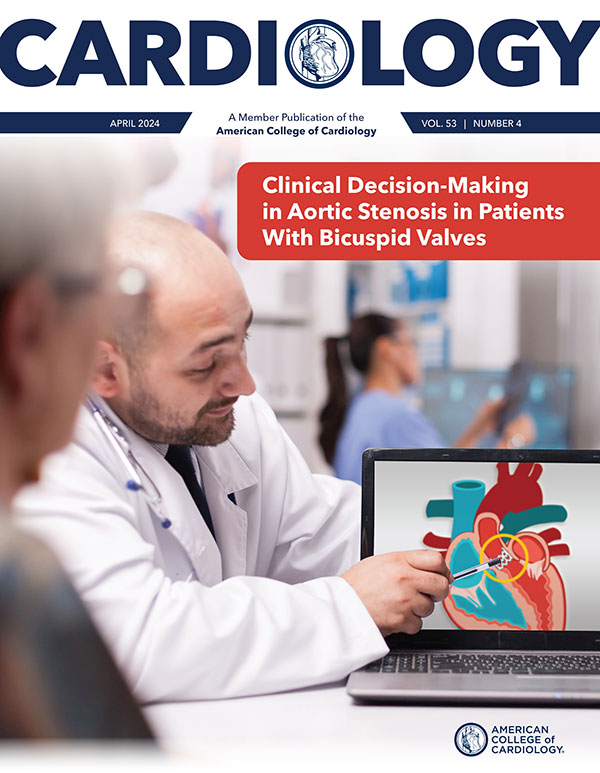Prioritizing Health | Weathering Change: The Importance of Talking to Patients About Environmental Risks to Heart Health

Addressing climate change is crucial not only for mitigating its environmental and societal impacts but also for protecting cardiovascular health and reducing the burden of cardiovascular diseases worldwide.
"Every day we see more and more the effects of climate change in our communities," says Colin T. Phillips, MD, FACC, chair of the ACC Board of Governors (BOG) Climate Change Work Group. "Patients want to know how to protect themselves and limit their cardiovascular risk."
The following are among the biggest climate-related risks to patients with heart disease:
Heat-related illnesses: Rising temperatures can lead to an increased risk of heat-related illnesses such as heat stroke and dehydration. These conditions can place additional strain on the cardiovascular system, particularly in vulnerable populations such as the elderly and those with preexisting cardiovascular conditions.
Air pollution: Climate change can exacerbate air pollution as a result of large-scale wildfires, higher temperatures leading to the formation of ground-level ozone and changes in weather patterns affecting the distribution of pollutants. Exposure to air pollution has been linked to hypertension, as well as increased risks of atrial fibrillation, heart attack and stroke, says Phillips, who adds that cardiovascular causes make up the majority of the 8 million deaths attributed to air pollution each year.
"As cardiovascular clinicians, we treat patients who suffer the negative impacts of climate change and air pollution but may not make the direct connection between pollution and illness," he notes.
Extreme weather events: More frequent and severe weather events like hurricanes, floods and wildfires can have direct and indirect impacts on cardiovascular health. Direct impacts include injuries and fatalities, while indirectly it can impact mental and physical well-being and cause disruptions to health care access and medications.
Vector-borne diseases: Changes in temperature and precipitation patterns can alter the geographic distribution and prevalence of vector-borne diseases like Lyme disease, Chagas disease and dengue fever. These diseases can lead to complications such as myocarditis and other cardiovascular problems.
Food and water insecurity: Changes in climate can disrupt food and water supplies through impacts on agriculture, water availability and sanitation infrastructure. This can lead to changes in dietary patterns and food quality, potentially increasing the risk of obesity, diabetes and hypertension, all of which are major risk factors for cardiovascular disease.
Changes in physical and mental well-being: Extreme weather events, especially those resulting in dramatic drops or increases in temperatures, may result in reduced physical activity, which can contribute to obesity, diabetes and other cardiovascular risk factors. These events can also cause significant psychosocial stress, which has been linked to adverse cardiovascular outcomes including hypertension, coronary artery disease and arrhythmias.
As frontline caregivers, cardiovascular clinicians play a pivotal role in recognizing the intricate connections between climate change and heart health and helping to provide patients with trusted information and tools to protect themselves and mitigate impacts on their health.
"Talking with patients about monitoring air quality, having a plan for finding clean air, limiting energy consumption and reducing their carbon footprint will improve heart health for all," says Phillips.
Additionally, he stresses the need for clinicians to feel empowered to become advocates in their communities. The BOG Work Group has worked closely with the CardioSmart team to develop a new infographic on air pollution and heart health that he hopes will help start conversations with patients, and among clinicians, about environmental factors contributing to the global burden of cardiovascular disease.
"We want to give patients tools to protect themselves and prevent cardiac events," he says.
Earth Day, Every Day

While Earth Day will be celebrated on Monday, April 22 this year, it's always a good time to talk to patients about the impacts of their environment on their heart health.
Click here to learn more about the global burden of cardiovascular disease, including leading environmental factors in the JACC Global Burden Hub. Don't miss on-demand webinars, infographics, an interactive data tool and more!
Click here for a State-of-the-Art review on environmental pollution and cardiovascular diseases in JACC: Advances.
Click here to download the new CardioSmart infographic on air pollution and heart health.
Keywords: Cardiology Magazine, ACC Publications, Heart Disease Risk Factors, Climate Change, Health Services Accessibility, Food Quality, Sanitation, Environment
